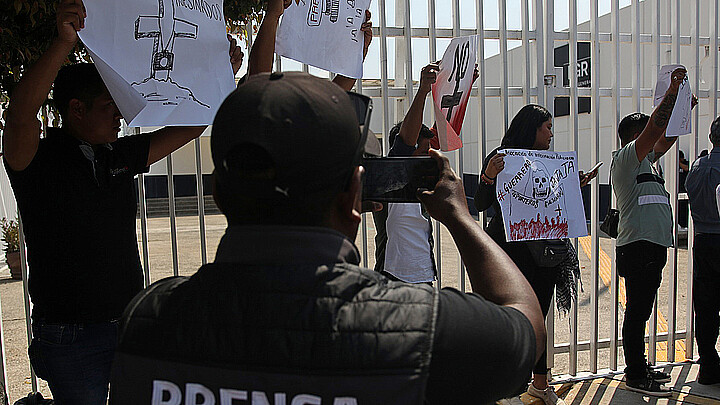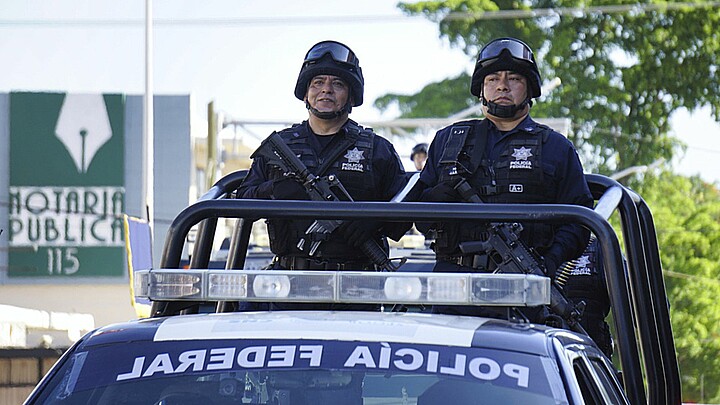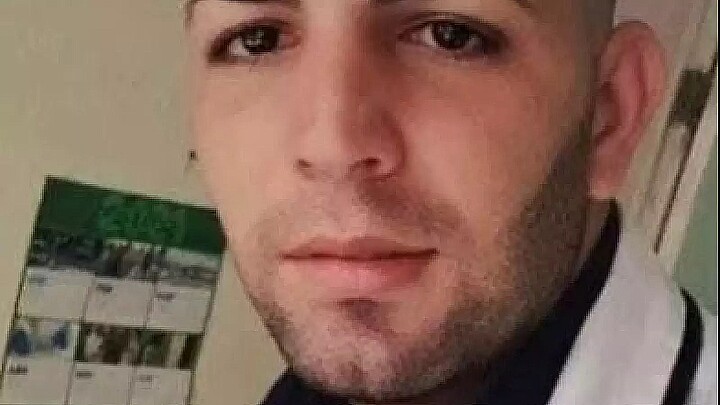Crime
Drug cartels invade Mayan pyramid sites in southern Mexico
The Mexican government has reported that at least two of the popular Mayan locations have been temporarily shut down as a result of rising crime in the state of Chiapas

January 30, 2024 6:48am
Updated: January 30, 2024 12:35pm
Several ancient Mayan pyramids in Mexico have been placed off limits by the government amid violence being sparked by the country’s drug cartels, according to a new report published by the Associated Press.
The Mexican government has reported that at least two of the popular Mayan locations have been temporarily shut down as a result of rising crime in the state of Chiapas.
The state has also been dominated by smugglers who are using the area as routes to transport migrants from lower Central America and Guatemala through the southern area of Mexico. According to the AP, about a half million migrants are now coming through Mexico’s southern border as part of their route from South America after making their way through the jungle terrain of the Darien Gap.
The southern state, which borders Guatemala with rainforests, stunning waterfalls, and mountainous highlands, is usually a popular source of tourism for the Latin American country but has suffered a wave of cartel violence during the past year.
Government officials told the AP that many of the historical ruins in the area controlled by drug cartels and gangs who are at war with one another. At Bonampak, an area famous for its murals, gunmen are now seen on the roadways, a site were once famous for its murals.
The Mexican government told journalists that the violence has become so unpredictable and out of control, they can no longer guarantee the safety of tourists and visitors who want to get a taste of history by visiting the ancient pyramids.
Still, two ruinous sites remain open are reachable by passing through gang-controlled checkpoints.
Other ruin sites, such as Tonina and Yaxchilán, have been completely isolated and shut down to discourage tourists from trying to enter the violence ridden areas.
Tour guides, who spoke anonymously to the AP said cartel guards at checkpoints were demanding tourist identification cards and unlocked cell phones.
While tourists are being stopped regularly, the checkpoints were mainly designed so the cartels can detect if any of their rival gang members are trying to enter their turf and controlled areas.
According to the Mexican government, there are other archeological sites in the country tourists can visit. To date, no tourists or visitors have been harmed—yet.
But the specter of potential violence has left many local tour guides fear stricken, and they refuse to take their clients to see the pyramids to avoid the risk of an incident.
“They demand your identification, to see if you’re a local resident,” one of the guides told the AP, pointing to a gang checkpoint on aroad to Lagartero.
“They take your cellphone and demand your sign-in code, and then they look through your conversations to see if you belong to some other gang,” he explained. “At any given time, a rival group could show up and start a gunbattle.”
The Mexican government disputed that particular account, saying that both Bonampak and Lagartero remain open to the public.
“It is false, biased and irresponsible to say that these archaeological sites are in danger from drug traffickers,” said the National Institute of Anthropology and History, which insists it “retains control of the sites.”
For the moment, the Palenque temple complex, commonly known as the most well-known Mayan ruin site in the Chiapas has remained open.
Despite some of the sites remaining open, the violence has already taken a toll on tourism in the region. The AP reports a 5% decline in trips that are often taken to the state, reporting that locals are concerned it could hurt the economy and their income.
“There are communities that sell handicrafts, that provide places to stay, boat trips, craftspeople. It affects the economy a lot,” the second guide said. “You have to remember that this is an agricultural state that has no industry, no factories, so tourism has become an economic lever, one of the few sources of work.”
Among some of the canceled tours are the more exciting trips that are deeper in the jungle such as a the famed Yaxchilán, which lies on the banks of the Usumacinta river and is reachable only by boat.
In other areas such as Frontera Coma Lapa, where boats once took travelers to take them to Yaxchilán, roads have been closed in hopes of shutting them off from armed cartel soldiers.
According to the Institute of National Institute of Anthropological History (INAH), there is no safe access to Yaxchilán. The institute says it has “recommended at certain points that tourists not go to the archaeological site, because they could have an unsuccessful visit,” adding that the reasons are more “of a social nature.”
While Mexican President Andrés Manuel López Obrador has tried to downplay the image of gang violence, his government has dispatched the National Guard to police the area.
Local indigenous groups have been at odds with the troops, even hurling sticks and stones at them, partially because some of them are recruited by the warring Jalisco and Sinaloa cartels.
Some of the local indigenous groups being pressured to join up with the cartels, such as the Choles and Lacandones, are descendants of the Mayans.











